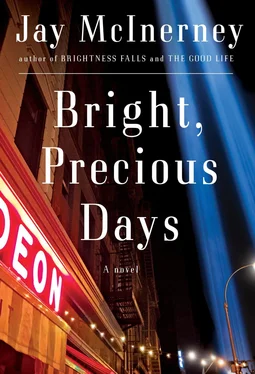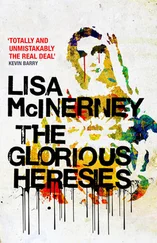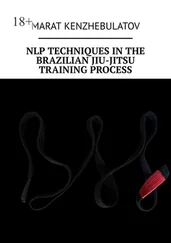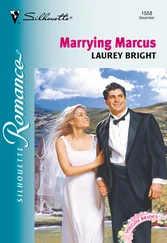—
While Jeremy practiced his high kicks and his kata at the dojo on Lower Broadway, Corrine took his sister shopping at Necessary Clothing and All Saints, browsing with her amid the endless racks of jeans and cheap sundresses. Anything that Corrine picked out elicited either a shrug or a sneer, and the items Storey picked seemed chosen to provoke.
“What’s wrong with it?” Storey said, holding up a tiny sequined halter.
“I think it’s a little…trashy.”
“You think anything cool’s slutty.”
“I did not use that word.”
Why was her daughter so irritated with her? she wondered. It was possible that Storey’s mood reflected her distress about her father and the recent scandal. In the end, Corrine swallowed her reservations about the skimpiness of a two-piece bathing suit and about the price of a pair of True Religion jeans, in hopes of scoring a few points.
Back home, while the kids settled down to homework, she went to the bedroom and gave in to a long-simmering impulse.
“How are you?” Luke asked.
“I’m fine.” She tried to sound light and casual; she’d thought about calling him several times over the last few days, but now that she heard his voice, she wasn’t at all certain about confiding in him. On reflection she saw that her troubles were joint, marital property, that sharing them with Luke would be disloyal to Russell, a principle she clung to even though it was rendered somewhat absurd by the fact of her serial betrayals.
“I was a little worried. I heard — well, about that book.”
Luke was in London, and for a moment she was surprised to learn this news had traveled across the Atlantic. On the other hand, it seemed to be everywhere right now. She was afraid to pick up a paper or turn on the TV.
She sighed. At least she wouldn’t have to pretend everything was fine.
“Well, I’ve had better weeks. As has Russell.” It seemed important at this point to mention his name, something she very rarely did in conversation with Luke.
“Should I ask how he’s holding up?”
“Probably not, but I’m sure you can imagine.”
“I suppose so. I’m so sorry.”
She was beginning to wish she hadn’t called.
“Is there anything I can do?”
“I can’t really think of anything. Unless you have access to a time machine, so I could go back and somehow prevent this mess.”
“Sorry.”
“Just checking. As a person of limited means, I find it strangely comforting to know there are apparently still things that money can’t buy.” She knew this sounded vaguely antagonistic, maybe even specifically so, but she couldn’t help it.
“I can assure you there are many of them, Corrine.”
“I’m afraid I wouldn’t know about that.”
She had a feeling that the sooner she got off the phone, the better. She knew Luke was trying to be sympathetic, and she wasn’t really mad at him, but neither did she think he was the right person to comfort her on this occasion. That was her mistake. Even though she loved him, she couldn’t muster any sweetness toward him at the moment.
“I just want you to know—”
“Let’s talk later, okay? This just isn’t a good time right now. I’ll call you soon.” Every phrase sounded more perfunctory than the last, but she couldn’t seem to help herself. She could feel the hurt and confusion in his silence. If she hung up now, she was afraid they might not recover, and perhaps that was all for the best; perhaps this was the moment to end it, however unexpectedly. But she wasn’t necessarily ready for that, and knew this feeling would probably pass, that she’d wake up in the morning yearning for him, as she so often had since seeing him walking up West Broadway covered in ashes, so she said, “I love you” before hanging up on him.
“Who was that?”
Corrine gasped for breath as she turned to see her daughter framed in the doorway. “Just a friend.”
“Who?”
“No one you know.”
“Why do you look so guilty?”
“You startled me.”
“Does Dad know this friend?”
“As a matter of fact, he does. Are you through with your homework already?”
“Why are you changing the subject?”
“Because the subject is finished. There’s nothing more to say about it.”
Storey kept staring at her, and Corrine found it hard to meet her judgmental gaze. When had she become so hostile? And why? Was the question of biological motherhood finally resonating? Or was this just a function of her age?
“Is there some reason you’ve become so critical of me recently?”
“I’ve just become more observant,” Storey said. “Plus, you and Dad taught me to have high standards.”
“I hope we also taught you a little about the value of compassion and empathy.”
“Whatever,” she said, turning and disappearing from view.
RUSSELL ARRIVED TEN MINUTES EARLY and took a seat at the bar. He’d read about the restaurant, Bacchus — the two-hundred-dollar prix fixe; the hundred-thousand-bottle cellar; the four Lehman bankers who’d run up a $72,000 tab, which got the senior partner at the table fired after an exposé in the New York Post —but hadn’t ventured inside until Tom Reynes suggested meeting there. The cocktail lounge was all shiny lacquered wood and tender matte leather, the bar itself a single piece of luminous patinated Cuban mahogany, which had once, so the bartender informed him, graced the original, long-vanished Waldorf-Astoria on lower Fifth Avenue.
In the interest of starting slowly, Russell ordered a Pellegrino and, out of curiosity, asked to see the wine list, only to be informed that there were two, one for the reds and one for the whites. Ah, yes, he’d read about that. He asked to see both and was presented with matching brown leather volumes, each weighing several pounds, which thoroughly engrossed him until Tom arrived, fifteen minutes late, greeting the bartender with a hearty handshake before turning to Russell.
“Sorry, meeting ran late,” he said. “Shall we go to the table?” The maître d’, a slender African-American in a tight black suit, had appeared beside him, and bowed them into the dining room.
On the way to the table, Tom paused to exchange greetings with diners and staff. Impeccable in a blue-gray birdseye suit, he bantered with the waiter and requested the sommelier, an improbably young man with an elfin face and a tattoo of grapes on his neck.
“Good evening, Mr. Reynes,” he intoned.
“Evening, Don. Let’s crack a bottle of white. How’s the ’89 Ramonet Montrachet showing?”
“Sick juice. You’ll love it. I just opened a bottle for Mr. Trousdale last night.”
“Trousdale, that fucking poseur. He wouldn’t know a good wine if he licked it from Scarlett Johansson’s coochie.” He turned to Russell. “You know Larry Trousdale? Dumb-ass, but he made a big score shorting the telecoms back in the day.”
Russell shrugged. “I’ve heard the name.”
As they glanced at the menus, Tom said, “So, you’ve really got your tit in the wringer.”
Russell nodded. “That’s one way to describe the situation.”
“At least you’ve been smart enough to stay off the airwaves. I saw that so-called author of yours on CNN the other day when I was at the gym. He just dug himself a deeper hole. We’re supposed to feel sorry for him because his novels didn’t sell and he was addled on drugs? Fucking idiot. I mean, what was he thinking when he decided to write this book? For that matter, what were you thinking when you decided to publish it?”
Russell was relieved when the sommelier showed up with the bottle of white, depositing two large gossamer-thin glasses in front of each of them, opening the bottle, and pouring a dollop for Tom, who swirled the glass, sniffed it, swirled again and finally tilted it toward his lips.
Читать дальше












